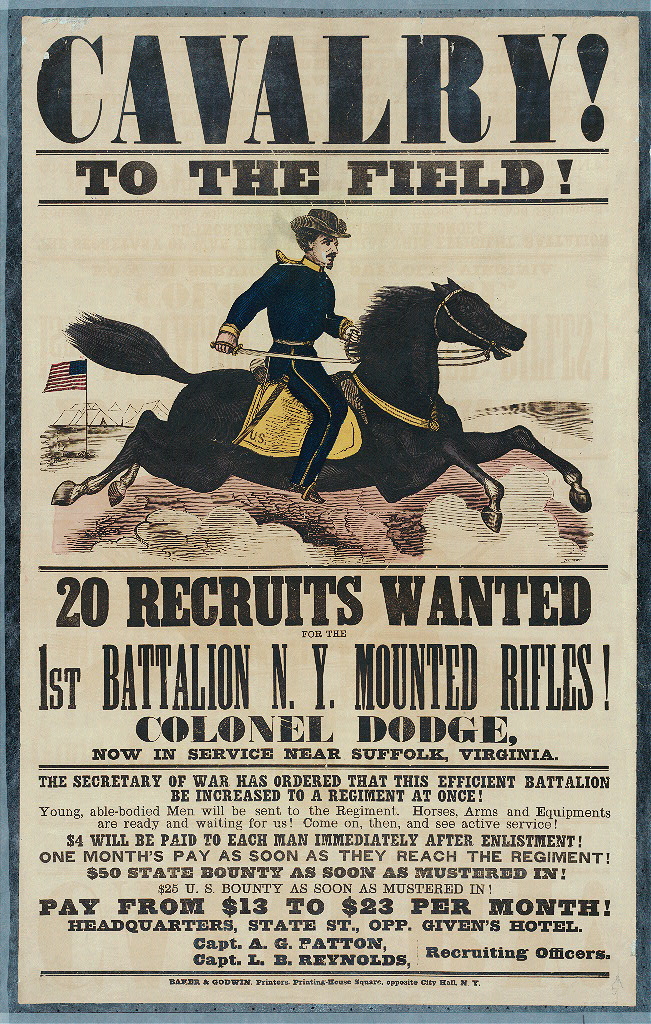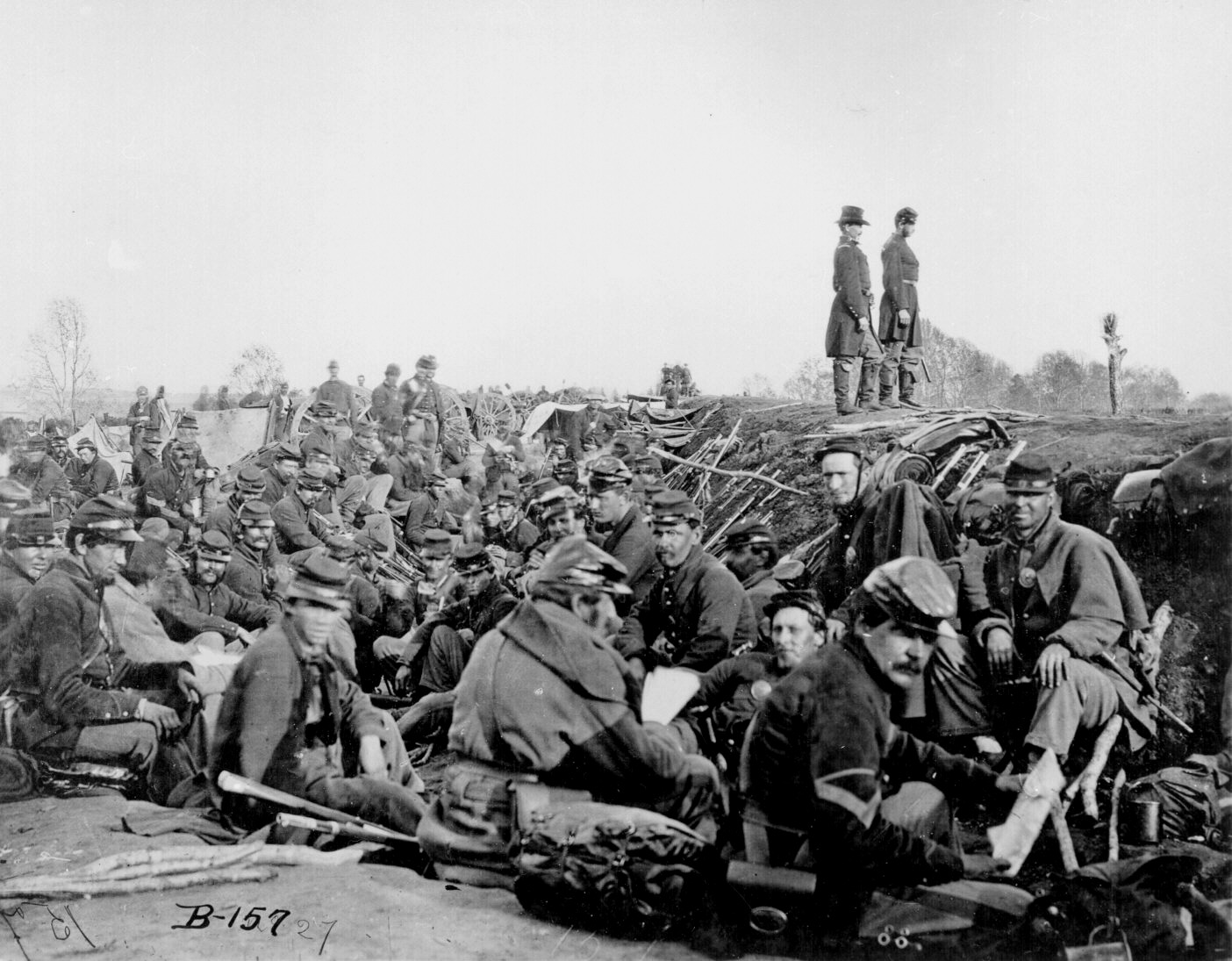|
Wilson–Kautz Raid
The Wilson–Kautz Raid was a cavalry operation in south central Virginia in late June 1864, during the American Civil War. Occurring early in the Richmond-Petersburg Campaign, the raid was conducted by Union cavalry under Brigadier Generals James H. Wilson and August Kautz, who were ordered to cut railroads between Lynchburg, Virginia, and the vital Confederate rail supply center at Petersburg. While the raid had the intended effect of disrupting Confederate rail communications for several weeks, the raiding force lost much of its artillery, all of its supply train, and almost a third of the original force, mostly to Confederate capture. Background Immediately following the Overland Campaign, Union Army commander Lt. Gen. Ulysses S. Grant proposed to encircle both the Confederate capitol at Richmond and its strategic supply center ten miles south at Petersburg. While infantry began the entrenchment activities of investment, Grant determined to take advantage of new position ... [...More Info...] [...Related Items...] OR: [Wikipedia] [Google] [Baidu] |
American Civil War
The American Civil War (April 12, 1861 – May 26, 1865; also known by other names) was a civil war in the United States. It was fought between the Union ("the North") and the Confederacy ("the South"), the latter formed by states that had seceded. The central cause of the war was the dispute over whether slavery would be permitted to expand into the western territories, leading to more slave states, or be prevented from doing so, which was widely believed would place slavery on a course of ultimate extinction. Decades of political controversy over slavery were brought to a head by the victory in the 1860 U.S. presidential election of Abraham Lincoln, who opposed slavery's expansion into the west. An initial seven southern slave states responded to Lincoln's victory by seceding from the United States and, in 1861, forming the Confederacy. The Confederacy seized U.S. forts and other federal assets within their borders. Led by Confederate President Jefferson Davis, ... [...More Info...] [...Related Items...] OR: [Wikipedia] [Google] [Baidu] |
August Kautz
August Valentine Kautz (January 5, 1828 – September 4, 1895) was a German-American officer. He served as a general in the Union Army, Union cavalry during the American Civil War. He was the author of several army manuals on duties and customs eventually adopted by the U.S. military. Early life and career Born in Ispringen, Baden, Germany, Kautz immigrated with his parents to Brown County, Ohio in 1832. He later enlisted as a Private (rank), Private in the 1st Ohio Infantry, serving in the Mexican–American War from 1846 to 1847. Entering the United States Military Academy following the war, Kautz graduated in the class of 1852. He primarily served at Fort Steilacoom in the Pacific Northwest, where he was wounded twice with the U.S. 4th Infantry Regiment, 4th U.S. Infantry during Rogue River Wars with Indians along the Rogue River (Oregon), Rogue River in 1855, and also served in the Puget Sound War in 1856. He was rewarded with a commission as a lieutenant in the Regular Army ( ... [...More Info...] [...Related Items...] OR: [Wikipedia] [Google] [Baidu] |
Cavalry In The American Civil War
The American Civil War saw cavalry tactics move largely away from the offensive towards the defensive, with the emphasis on screening (tactical), screening, raid (military), raiding, and reconnaissance. Development of the rifled musket had also rendered the cavalry charge both impractical and detrimental. In the first half of the war, the Confederates enjoyed the advantage in cavalry, as southern men were more accustomed to the riding and shooting life, and most of the experienced cavalry officers from the regular army had chosen to side with the Confederacy. By the second half, from 1863 onward, the Union Army had gained an equal cavalry capability, through Benjamin Grierson's brilliant deception tactics in the Mississippi valley, and Philip Sheridan's aggressive movements, while in command of the Union Army of the Shenandoah, Army of the Shenandoah at the end of the war in Virginia. Cavalry units proved highly expensive to maintain, and unscrupulous agents would often ex ... [...More Info...] [...Related Items...] OR: [Wikipedia] [Google] [Baidu] |
Ulysses S
Ulysses is one form of the Roman name for Odysseus, a hero in ancient Greek literature. Ulysses may also refer to: People * Ulysses (given name), including a list of people with this name Places in the United States * Ulysses, Kansas * Ulysses, Kentucky * Ulysses, Nebraska * Ulysses Township, Butler County, Nebraska * Ulysses, New York *Ulysses, Pennsylvania * Ulysses Township, Potter County, Pennsylvania Arts and entertainment Literature * "Ulysses" (poem), by Alfred Lord Tennyson * ''Ulysses'' (play), a 1705 play by Nicholas Rowe * ''Ulysses'', a 1902 play by Stephen Phillips * ''Ulysses'' (novel), by James Joyce * ''HMS Ulysses'' (novel), by Alistair Maclean * Ulysses (comics), two members of a fictional group in the Marvel Comics universe * Ulysses Klaue, a character in Marvel comic books * Ulysses: Jeanne d'Arc and the Alchemist Knight, a light novel Film and television * ''Ulysses'' (1954 film), starring Kirk Douglas based on the story of Homer's ''Odysse ... [...More Info...] [...Related Items...] OR: [Wikipedia] [Google] [Baidu] |
Lieutenant General (United States)
In the United States Armed Forces, a lieutenant general is a three-star general officer in the United States Army, Marine Corps, Air Force, and Space Force. A lieutenant general ranks above a major general and below a general. The pay grade of lieutenant general is O-9. It is equivalent to the rank of vice admiral in the other United States uniformed services which use naval ranks. It is abbreviated as LTG in the Army, LtGen in the Marine Corps, and Lt Gen in the Air Force and Space Force. Statutory limits The United States Code explicitly limits the total number of generals that may be concurrently active to 231 for the Army, 62 for the Marine Corps, and 198 for the Air Force. For the Army and Air Force, no more than about 25% of the service's active duty general officers may have more than two stars. [...More Info...] [...Related Items...] OR: [Wikipedia] [Google] [Baidu] |
Overland Campaign
The Overland Campaign, also known as Grant's Overland Campaign and the Wilderness Campaign, was a series of battles fought in Virginia during May and June 1864, in the American Civil War. Lt. Gen. Ulysses S. Grant, general-in-chief of all Union armies, directed the actions of the Army of the Potomac, commanded by Maj. Gen. George G. Meade, and other forces against Confederate Gen. Robert E. Lee's Army of Northern Virginia. Although Grant suffered severe losses during the campaign, it was a strategic Union victory. It inflicted proportionately higher losses on Lee's army and maneuvered it into a siege at Richmond and Petersburg, Virginia, in just over eight weeks. Crossing the Rapidan River on May 4, 1864, Grant sought to defeat Lee's army by quickly placing his forces between Lee and Richmond and inviting an open battle. Lee surprised Grant by attacking the larger Union army in the Battle of the Wilderness (May 5–7), resulting in many casualties on both sides. Unlike his pr ... [...More Info...] [...Related Items...] OR: [Wikipedia] [Google] [Baidu] |
Petersburg, Virginia
Petersburg is an independent city in the Commonwealth of Virginia in the United States. As of the 2020 census, the population was 33,458. The Bureau of Economic Analysis combines Petersburg (along with the city of Colonial Heights) with Dinwiddie County for statistical purposes. The city is south of the commonwealth (state) capital city of Richmond. It is located at the fall line (the head of navigation of rivers on the U.S. East Coast) of the Appomattox River (a tributary of the longer larger James River which flows east to meet the southern mouth of the Chesapeake Bay at the Hampton Roads harbor and the Atlantic Ocean). In 1645, the Virginia House of Burgesses ordered Fort Henry built, which attracted both traders and settlers to the area. The Town of Petersburg, chartered by the Virginia legislature in 1784, incorporated three early settlements, and in 1850 the legislature elevated it to city status. Petersburg grew as a transportation hub and also developed industry ... [...More Info...] [...Related Items...] OR: [Wikipedia] [Google] [Baidu] |
Confederate States Army
The Confederate States Army, also called the Confederate Army or the Southern Army, was the military land force of the Confederate States of America (commonly referred to as the Confederacy) during the American Civil War (1861–1865), fighting against the United States forces to win the independence of the Southern states and uphold the institution of slavery. On February 28, 1861, the Provisional Confederate Congress established a provisional volunteer army and gave control over military operations and authority for mustering state forces and volunteers to the newly chosen Confederate president, Jefferson Davis. Davis was a graduate of the U.S. Military Academy, and colonel of a volunteer regiment during the Mexican–American War. He had also been a United States senator from Mississippi and U.S. Secretary of War under President Franklin Pierce. On March 1, 1861, on behalf of the Confederate government, Davis assumed control of the military situation at Charleston, South C ... [...More Info...] [...Related Items...] OR: [Wikipedia] [Google] [Baidu] |
Lynchburg, Virginia
Lynchburg is an independent city (United States), independent city in the Commonwealth (U.S. state), Commonwealth of Virginia in the United States. First settled in 1757 by ferry owner John Lynch (1740–1820), John Lynch, the city's population was 79,009 at the 2020 United States census, 2020 census. Located in the foothills of the Blue Ridge Mountains along the banks of the James River, Lynchburg is known as the "City of Seven Hills" or the "Hill City". In the 1860s, Lynchburg was the only city in Virginia that was not recaptured by the Union (American Civil War), Union before the end of the American Civil War. Lynchburg lies at the center of a wider Lynchburg metropolitan area, metropolitan area close to the geographic center of Virginia. It is the fifth-largest Metropolitan statistical area, MSA in Virginia, with a population of 261,593. It is the site of several institutions of higher education, including Virginia University of Lynchburg, Randolph College, University of L ... [...More Info...] [...Related Items...] OR: [Wikipedia] [Google] [Baidu] |
Brigadier General (United States)
In the United States Armed Forces, a brigadier general is a one-star general officer in the United States Army, Marine Corps, Air Force, and Space Force. A brigadier general ranks above a colonel and below a major general. The pay grade of brigadier general is O-7. It is equivalent to the rank of rear admiral (lower half) in the other United States uniformed services which use naval ranks. It is abbreviated as BG in the Army, BGen in the Marine Corps, and Brig Gen in the Air Force and Space Force. History The rank of brigadier general has existed in the U.S. military since the inception of the Continental Army in June 1775. To prevent mistakes in recognizing officers, a general order was issued on July 14, 1775, establishing that brigadier generals would wear a ribbon, worn across the breast, between coat and waistcoat, pink in color. Later, on June 18, 1780, it was prescribed that brigadier generals would instead wear a single silver star on each epaulette. At first, briga ... [...More Info...] [...Related Items...] OR: [Wikipedia] [Google] [Baidu] |
Siege Of Petersburg
The Richmond–Petersburg campaign was a series of battles around Petersburg, Virginia, fought from June 9, 1864, to March 25, 1865, during the American Civil War. Although it is more popularly known as the Siege of Petersburg, it was not a classic military siege, in which a city is usually surrounded and all supply lines are cut off, nor was it strictly limited to actions against Petersburg. The campaign consisted of nine months of trench warfare in which Union forces commanded by Lt. Gen. Ulysses S. Grant assaulted Petersburg unsuccessfully and then constructed trench lines that eventually extended over from the eastern outskirts of Richmond, Virginia, to around the eastern and southern outskirts of Petersburg. Petersburg was crucial to the supply of Confederate Gen. Robert E. Lee's army and the Confederate capital of Richmond. Numerous raids were conducted and battles fought in attempts to cut off the Richmond and Petersburg Railroad. Many of these battles caused the leng ... [...More Info...] [...Related Items...] OR: [Wikipedia] [Google] [Baidu] |
Cavalry
Historically, cavalry (from the French word ''cavalerie'', itself derived from "cheval" meaning "horse") are soldiers or warriors who fight mounted on horseback. Cavalry were the most mobile of the combat arms, operating as light cavalry in the roles of reconnaissance, screening, and skirmishing in many armies, or as heavy cavalry for decisive shock attacks in other armies. An individual soldier in the cavalry is known by a number of designations depending on era and tactics, such as cavalryman, horseman, trooper, cataphract, knight, hussar, uhlan, mamluk, cuirassier, lancer, dragoon, or horse archer. The designation of ''cavalry'' was not usually given to any military forces that used other animals for mounts, such as camels or elephants. Infantry who moved on horseback, but dismounted to fight on foot, were known in the early 17th to the early 18th century as '' dragoons'', a class of mounted infantry which in most armies later evolved into standard cavalry while ... [...More Info...] [...Related Items...] OR: [Wikipedia] [Google] [Baidu] |





